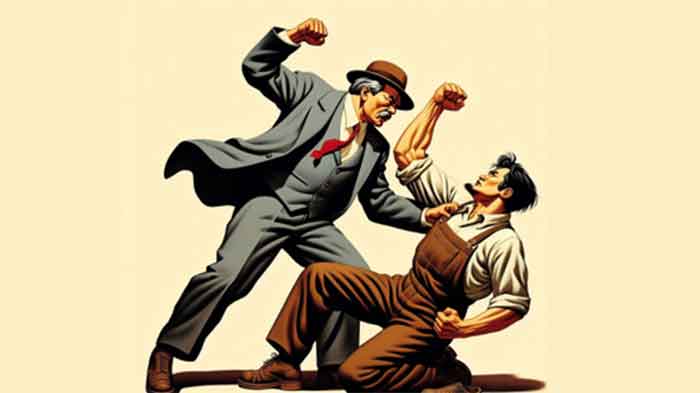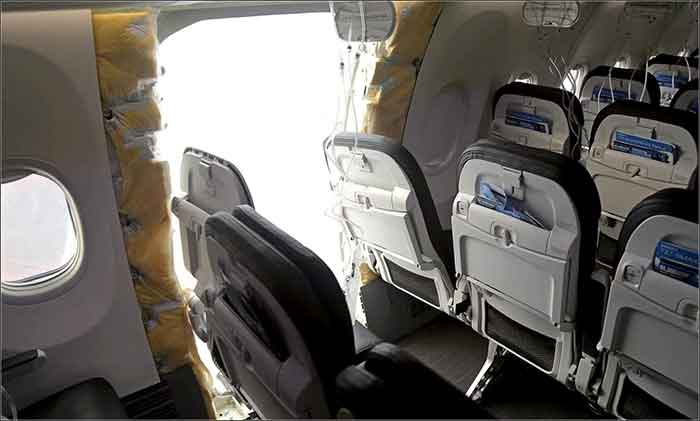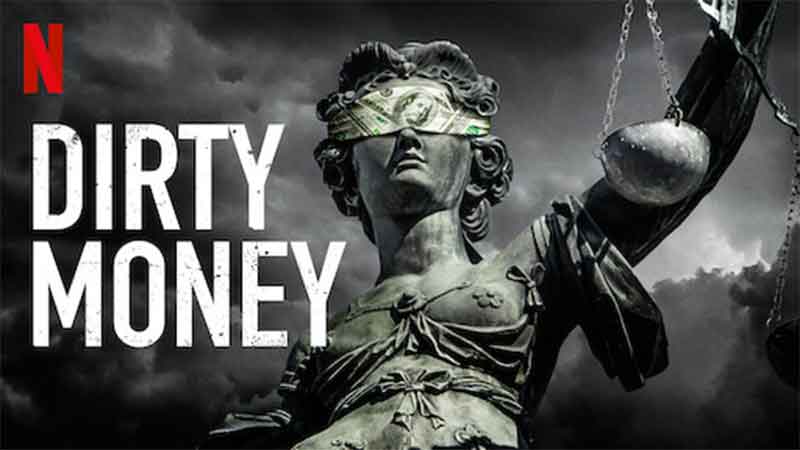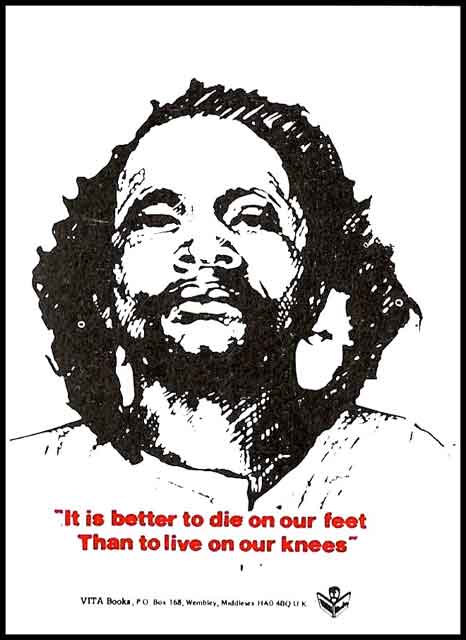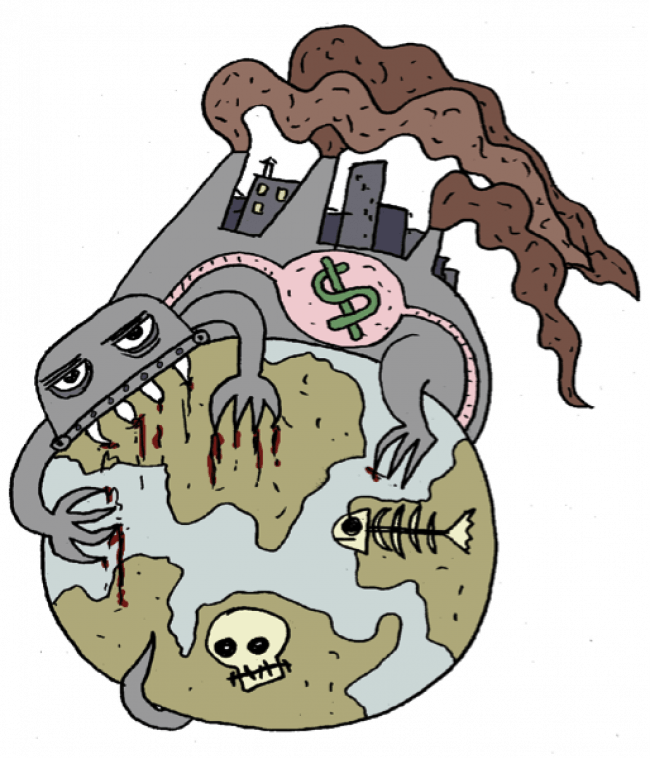
“Economic Hitmen (EHM) are highly paid professionals who cheat countries around the Globe of trillions of dollars…funnel money from W.B, US.AID, …into coffers of huge corporations and into the pockets of a few wealthy families…tools include fraudulent financial reports, rigged elections, pay off, extortion, sex and murder…” (1).
EHMs arrange loans larger than the country’s ability to pay; it defaults and has to surrender vote in the U.N.O, allow USA military bases, and hand over natural resources (2).
US executives hire people at near slave wages to work in inhuman conditions in Asian sweatshops….Oil companies pump toxins into rain forest rivers…killing people, animals and plants…pharmaceutical industry denies life-saving drugs to HIV infected Africans, while twelve million in the USA worry about the next meal (3).
Tribal and other indigenous people resist destruction of homes by oil companies-unsuccessfully.
A few illustrative examples should convince even the most skeptic:
-Ecuador is about the size of Nevada. An oil pipelines leaked more than a million barrels of oil into the rain forest ; twice what Exxon-Valdez did (4). Indigenous people have brought $ 1 billion worth of suits against Chevron-Texaco since 1970’s with not a penny to show for it (5). A New York court decided against the judgment of the court in Ecuador to fine the company 18.1 billion (5a).
During the oil boom official poverty level rose from 50% to 70%, and under employment from 15% to 70%, public debt from $ 240 million to $ 16 billion, while the Share of the poor in resources fell from 20% to 6% (6)
Third World debt stands at $ 2.5 trillion (4 trillion and counting in 2010) with servicing (interest) of $ 375 billion; more than all the Third World expenditure on health and education and twenty times of what Under Developed countries receive as aid! (7)
Dams built to generate electricity play havoc with ecology, displace peasants, and make the elite richer. For the Agoyan Hydro-electric plant in Ecuador, the country had to sell rain forest to pay foreign debt. Of $ 100.00 of oil money $ 75.00 goes to oil companies and $ 2.50 for health and education (8).
Jaime Roldos, a university professor, ran for president in 1978 on the platform of egalitarianism and prudent use of resources and won and focused on Texaco, the main oil player.
In 1981, Roldos presented Hydrocarbon law to his Congress for changing the relationship with oil companies (9). Oil Companies unleashed a barrage of vilification of Roldos, offering threats and bribes.
Roldos expelled Summer Institute of Linguistic (SIL) an evangelical group, funded by Rockefeller charities, offered food, clothes, health care and proselytization and persuaded tribesmen to move from land where oil was reported. In a major address he warned other foreign interests to help the people of his country or face expulsion (10)
He died in a midair explosion on 5/24/1981. His successor Oswaldo Hurtado invited SIL back and reinstated Oil Companies. (Zia of Pakistan exploded in the air in 1988, when he obstructed US/USSR deal on Afghanistan and for good measure took US ambassador, military attaché and a dozen generals with him).
-Panama:
At the advent of the 20th century, Theodore Roosevelt demanded that in lieu of loans Colombia had taken to build the Panama Canal, it surrender the isthmus to a North American consortium. It refused.
In 1903 Roosevelt sent the US Warship Nashville, overthrew the government and installed a puppet. The first Canal Treaty was signed by the US secretary of State Hay and by a French engineer Phillipe Bunau-Varilla, but by no Panamanian (11).
Omar Torrijos, the president of Panama objected to the School of Americas and the US southern command tropical warfare training center, both in the Canal Zone where the sons of dictators and military officers were invited to learn interrogation and covert operation techniques.
Torrijos and Carter renegotiated Panama Canal treaty in 1977; ratified by a single Congress vote; control passed to Panama..
Torrijos had expelled SIL too and refused to renegotiate the Canal treaty. He died in a plane explosion on 7/31/1981. Noreiga took over and invited the School of Americas removed under the Canal treaty (12). Bechtel of Shultz and Wienberger were also invited.
Noriega initially tried to push through the Japanese deal to build a new canal without locks. US continued to get in the way (13).
Noriega acting as CIA’s Panama liaison, had links with drug dealers, had helped CIA infiltrate drug cartels, and expected CIA to protect him.
Noriega refused extension of the School of Americas for an indefinite period. The U.S. attacked on 12/20/1989 (14). Noriega was brought to the U.S. jailed for 40 years.
The new canal treaty became a moot point.
-Indonesia:
During WW II, the Dutch surrendered to the Japanese without much of a fight. Following Japanese surrender Soekarno declared independence and achieved it on 12/27/1949 after four years of fighting.
Intra-tribal conflict followed. Soekarno suspended the parliament in 1960 and was named president for life in 1963. He developed alliances with communist governments for military and economic aid. He was one of the pillars of non-aligned movement and presided over the Bandung conference
. Ethnic Chinese Local, many of them communists, dominated industry and commerce.
The U.S decided to seduce Indonesia. A coup in 1965, reminiscent of the 1953 coup in Iran overthrew him. Half to one million people were massacred by the army whose chief Suharto formally took over in 1968. (15).
Conditions deteriorated. Girls offered sex for a few coins. Card board hovels sheltered entire families. Canals had turned into cesspools and roads were overlaid with choking fumes.
Indonesia was offered an electrification plant meant to serve oil companies, ports for pipe lines, and construction planned for the next twenty five years while babies were dying for lack of food and potable water.
-Guatemala:
United Fruit was founded in 1800’s in Guatemala. In early 1950’s, reform candidate Jacobo Arbenz was elected as the president.
At the time 3% Guatemalans owned 70% of the land. Arbenz promised to redress the injustice. United Fruit launched a furious PR campaign. In 1954 CIA supervised a coup during which American pilots bombed Guatemala City and Col Castillo Armas, right wing dictator took over and reversed land reforms (16). United Fruit was owned by Zapata oil, George Bush 1’s (US ambassador to the UN at the time) company.
-OPEC and oil companies:
OPEC was founded in the 1960’s.Oil companies had been holding down oil prices.1973 oil embargo changed the equation.
Nixon threatened to invade Saudi Arabia and only the promise to deposit petro-dollars in N.Y stopped him. The deal included purchase of USG securities.
Corporations and USG bonded better than ever (17).
-Serving the Saudi interest:
10/2003 issue of Vanity Fair reported that relations between Bush family, Saudis and ben Laden family went back to 1974. Saudis supported a Bush investment Harken, a failing Oil Co (18). Bush 1 and Baker appeared before a Saudi audience to raise funds for the Carlyle group.
Days after 9/11 Saudis, including ben Laden family members were flown out of the US on private jets when the air space was still closed to civilian flights (19).
-The Bush Family, Enron, Oil:
Enron came out of nowhere and started putting together huge deals.
The V.P’s son George W. Bush, whose first Energy Co, Arbustob (Spanish for Bush), was rescued from failure by merger in 1984 with Spectrum 7, which in turn was bailed out by Harken in 1986. Bush Jr was retained as a board member at $ 200,000.00 per year (20).
Harken availed of the opportunity to spread internationally. Vanity Fair, “Once Bush was on the board, new investments drilling rights came in” (21).
In 1989 Amoco was negotiating with Bahrain for drilling rights (22).. Bush 1 got elected as President; Harken replaced Amoco (23).
-Saddam falls into a trap:
Reagan-Bush wanted to see Iraq as another Saudi Arabia. But Saddam was not buying into the scenario.
In 8/1990 Saddam, beset by loans incurred during war with Iran, which loans fellow Arabs had not forgiven, invaded Kuwait, after getting clearance by April Glaspie, US ambassador (24). Bush 1 attacked it.
Iraq was attacked again in 2003 for oil, not terrorism, as rising oil prices might make U.S Empire self-destruct (25).
On 4/18/2003 N.Y Times reported that U.S gave Bechtel major contract in rebuilding Iraq. Halliburton of Dick Cheney got another contract (26).
– Venezuela:
Hugo Chavez elected in 1998 introduced Hydrocarbon law, which doubled the royalties charged from oil companies (27) and replaced the executives in the State owned Oil Co by his own people (28).
It was the fourth largest oil exporter and number three supplier to the US. Its oil income was $ 50 billion; 80% of export revenue.
US attention was diverted to Afghanistan/Iraq, though it did try a Mossadegh like coup on Chavez (29). 9/11 saved him. Chavez came back after 72 hours (30).
Bibliography/References:
- Perkins, John, “Confessions of an Economic Hitman,” (San Francisco: Berrett-Koehler Publishers, Inc, 2004.
- Ibid.
- http://.www.frac.org
- Tolann, Sandy, “Ecuador: Lost Promises,” National Public Radio, Morning Edition, July 9, 2003, http://www.npr.org/programs/morning/features/2003/jul/latinoil
- Ellen, Abby, “Suit Says Chevron Texas Dumped Poisons in Ecuador,” New York Times, May 8, 2003.
5a. www.businessweek.com/magazine/content/11_12/b4220056636512.htm
- Yergin, Daniel and Stanislaw, Joseph, “The Commanding Heights: The Battle for the World Economy,” (New York: Simon and Schuster, 2001).
- Henry, James S., “The Blood Bankers: Tales from the Global Underground,” (New York: Four Walls Eight Windows, 2003); www.theguardian.com/global-developing/poverty-matter/2012/may/15/developing-world-of-debt
- ibid 4
- Kane, Joe, “Savages,” (New York: Alfred Knopf, 1995).10. Martz, John D., “Politics and Petroleum in Ecuador,” (New Brunswick and Oxford: Transaction Books, 1987), p 272.
- Greene, Graham, “Getting to Know the General,” (New York: Pocket Books, 1984).
- Manuel Noreiga with Peter Eisner, “Memoirs of Manual Noriega, America’s Prisoner,” (New York: Random House,1997).
- Ibid.
16.ibid.
- Friend, Theodore, “Indonesian Destinies,” (Cambridge, MA and London: The Belknap Press of Harvard University, 2003).
- Zinn Howard, “A People’s History of the United States,” (New York: Harper and Row, 1980).
19 .Lizette Alvarez, Documents Show US Considered Using Force During Oil Embargo, New York times, Jan 1, 2004.
- Carter, Graydon, “Editor’s Letter: Fly the Friendly Skies,” Vanity Fair, October, 2003.
- Colby, Gerard and Dennett, Charlotte, “Thy Will be Done, the Conquest of the Amazon: Nelson Rockefeller and Evangelism in the Age of Oil,” (New York: Harper Collins, 1995), p. 381.
- www.vanityfair.com/politics/…/10/saving-the-saudis-200310
- Ibid.
- Conason, Joe,“The George W. Bush Success Story,” Harper’s Magazine,” February 2000.
- en.wikipedia.org/wiki/April_Glaspie
- antiwar.com/blog/2013/03/19the-lie-that-got-us-i-the-bush-admiistration-knew-there-were-no-wmds-i-iraq/
- Oppel, Richard A. with Henriques, Diane B., “A Nation at War: The Contractor Company Has Ties in Washington, and to Iraq,” New York Times, April 18, 2003.
- Venezuala on the Brink,” Editorial, New York Times, December 12, 2002.
- www.chavezthe film.com
- Weiner, Tim, “A Coup by Any Other Name,” New York Times, April 14, 2002
Bio:
I was born in Dewa Sharif, UP, India in 1939.
I went to school from the fourth to eighth class in Gonda, UP and the 9th grade in Jhansi, UP, India.
We moved to Quetta, Pakistan and went to school for the 10th grade and intermediate college in the same town.
I was in Karachi University 1954-57, then Dow Medical College 1957-62. I Was in the National Students Federation from 1954 to 1962, trained in surgery in the Civil Hospital Karachi 1962-65, proceeded to England 1965 and trained in General surgery and orthopedic surgery till 73, when I left for Canada 1973-74, USA 1974-83, back to Karachi 1983 and built a hospital and went back to the USA in 1991, been in the USA since.
I retired from surgery in 2005.
I have worked in various HR and Socialist groups in the USA.
I have Published two books ,:”A Medical Doctor Examines Life on Three Continents,” and ,”God, Government and Globalization”, and am working on the third one, “An Analysis of the Sources and Derivation of Religions”.
IF YOU LIKED THE ARTICLE SUPPORT PEOPLE’S JOURNALISM

